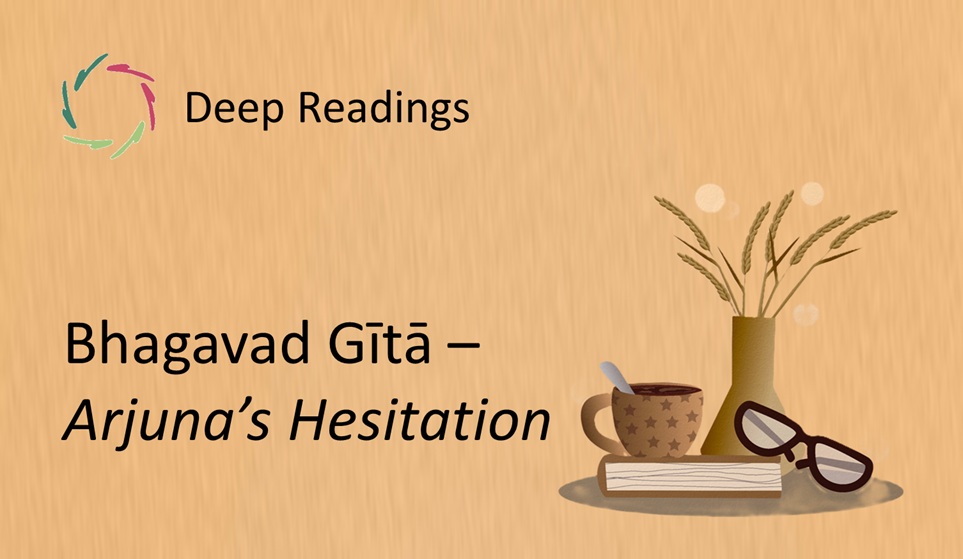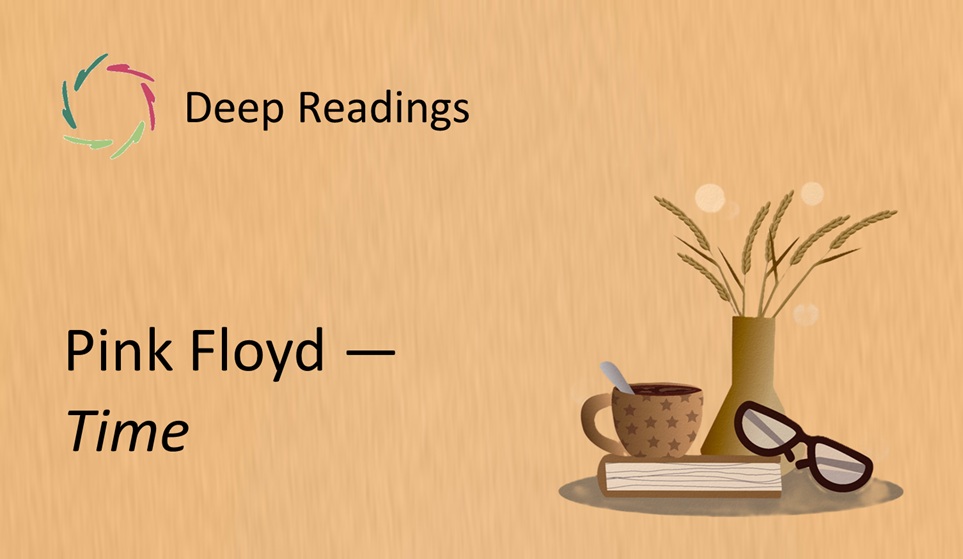Deep Readings: Bhagavad Gītā – Arjuna’s Hesitation (Chapter 2)

The Fragment
My limbs fail, my mouth is dry, my body trembles, my hair stands on end… I will not fight.
(Chapter 2, selected lines. Public domain — Read more → Sacred Texts)
Contextual Glimpse
The Bhagavad Gītā forms the spiritual heart of the Mahābhārata, written between the 2nd century BCE and 2nd century CE. At the brink of battle, the warrior Arjuna sees friends and family arrayed on both sides. Overwhelmed, he drops his bow, trembling, and says: I will not fight. His refusal opens the Gītā’s dialogue with Krishna — a philosophical unfolding on duty, self, death, and transcendence.
This moment is not weakness. It is a crisis of conscience, of inner conflict that reveals the depth of Arjuna’s humanity. His body responds with fear and his mind recoils from violence — yet this very breakdown becomes the entry point to wisdom.
Resonance
The resonance lies in Arjuna’s trembling. To face action that feels both necessary and unbearable — this is the very tension of being human. He feels torn between dharma (duty) and love, courage and collapse. His paralysis reflects the condition many feel before hard choices: when every option carries pain.
This is not simply a warrior’s hesitation, but a universal moment — the stillness before acting, when identity trembles and old certainties break. In that silence, the deeper self may awaken.
Why this may also be about you
You may not stand on a battlefield, yet there are moments when you, too, feel your limbs weaken and your voice dry. When you hesitate to act — torn between what you feel and what you believe you must do.
Arjuna’s fear may mirror your own moments of pause before life’s demands. The Gītā invites you not to hide that hesitation, but to enter it more deeply. Perhaps within your trembling lies the start of a deeper clarity.
Lisa’s inspired, original idea about this fragment
Perhaps Arjuna’s paralysis is a sacred moment. It is not failure, but the beginning of transformation. The bow must fall from his hands before wisdom can reach his heart. In this view, breakdown becomes a portal — not the end, but the passage to another way of being.
In that space of collapse, something softens. Arjuna becomes not just warrior, but seeker. And in that shift, the Gītā becomes not a battle manual, but a mirror of inner evolution.
Echoes
This scene has echoed through millennia. Gandhi turned to the Gītā for inner guidance, interpreting its war as an allegory for internal struggle. The line “I will not fight” has been echoed in psychology, nonviolence movements, and spiritual reflections across cultures.
Even today, when people confront their own turning points — whether personal, professional, or ethical — Arjuna’s hesitation remains close. It echoes in anyone who drops the bow, even momentarily, to listen inward.
Inner Invitation
Close your eyes and imagine holding a bow — poised for action. Then feel your hands begin to shake. Let them drop the bow. Allow the silence that follows.
Ask yourself: What am I afraid to face? What conflict am I caught in now? Can I pause without judgment? In the stillness, listen — not for answers, but for a deeper question.
Closing Note
Arjuna teaches that hesitation may be the beginning of wisdom. Before we act, we may first need to tremble.
Lisa’s final take
Clarity may come only after collapse.
Keywords
hesitation, inner conflict, Arjuna, Bhagavad Gita, choice, collapse, dharma, transformation, fear, inner clarity


